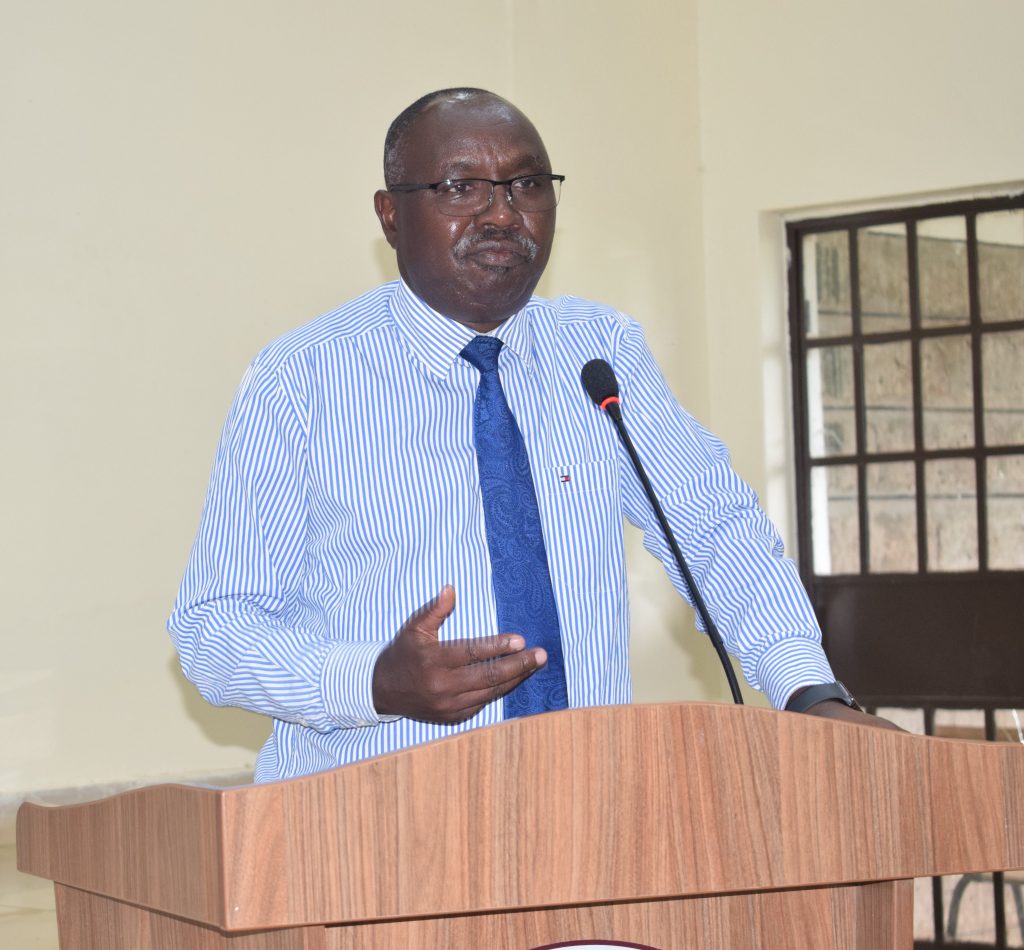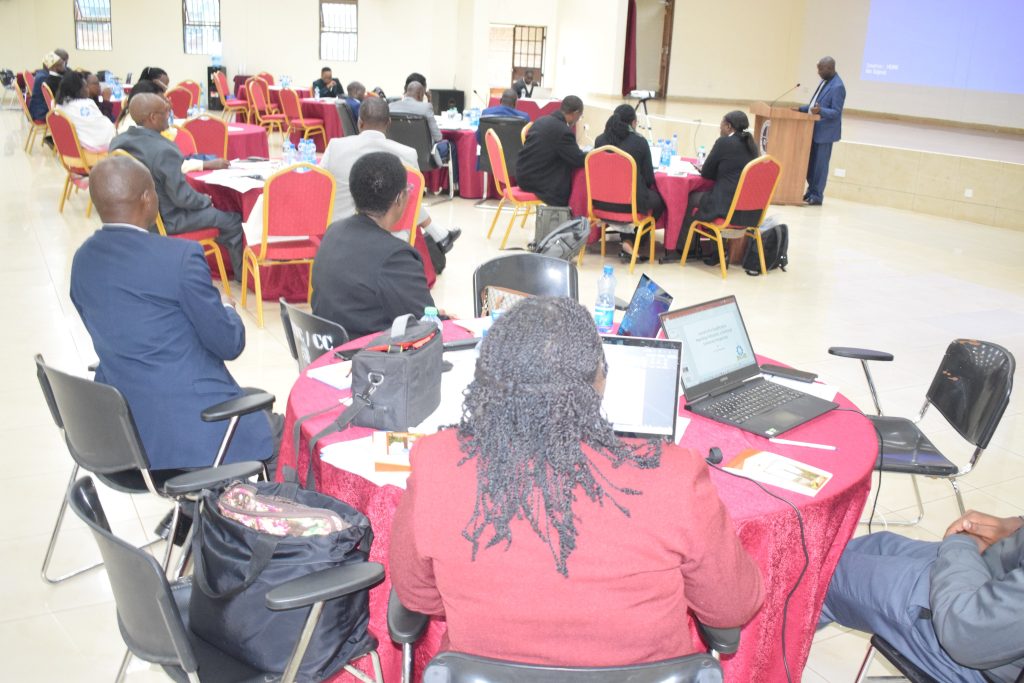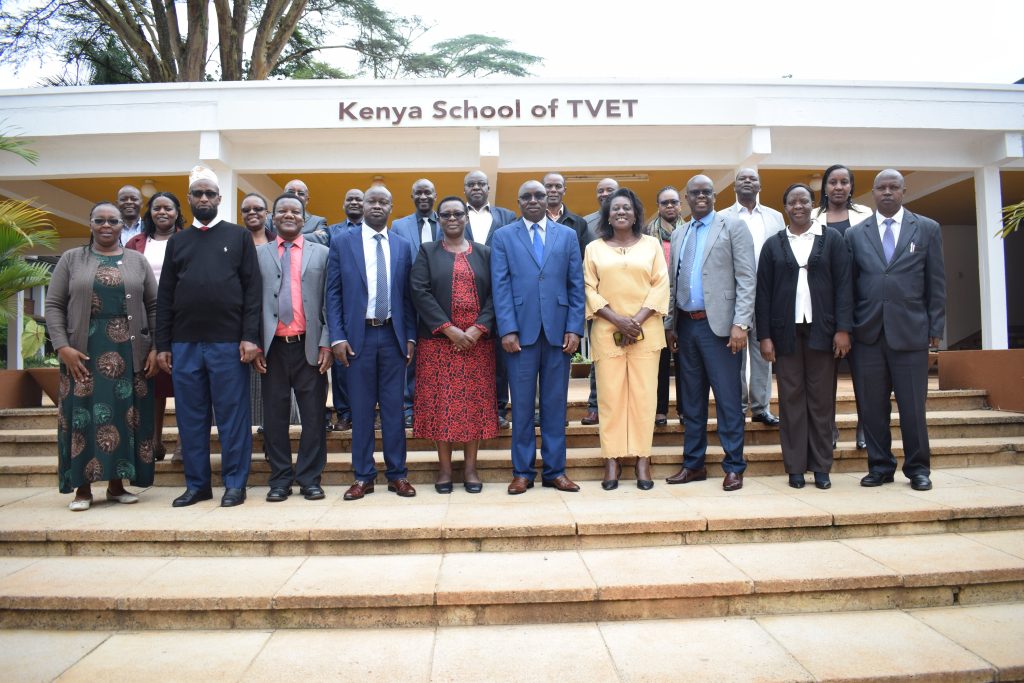Share this post:

TVET Authority (TVETA) organized a one-day sensitization meeting on May 30th, 2023, at KSTVET with principals from national polytechnics to expedite the implementation of legal orders pertaining to Competency-Based Education and Training (CBET). The meeting aimed to build synergies and learn from institutions that have successfully implemented CBET programs, such as the Kenya Medical Training College (KMTC) and Bukura Agricultural College.”
During the meeting, it was emphasized that the TVET-CDACC (Technical and Vocational Education and Training Curriculum Development, Assessment and Certification Council) was established to develop the CBET curriculum and certify trainees. However, the national polytechnics possess the legal authority for curriculum preparation, assessment, and certification. This collaboration between the TVET-CDACC and the national polytechnics is crucial for the successful implementation of CBET courses.
To facilitate the implementation of CBET courses in the TVET sector, the TVET Authority has developed various frameworks, manuals, guidelines, and tools. Despite these efforts, the national polytechnics have made limited progress in adopting CBET courses. Hence, the meeting served as a platform to address the challenges faced and to explore strategies for accelerating the integration of CBET in these institutions.
Dr. Kipkirui Langat, a prominent figure in the field of TVET, emphasized the importance of certification credibility, collaboration with industry partners and technical universities, as well as the progression of TVET graduates. His insights shed light on the key factors that contribute to the success of CBET implementation.
Paul Njogu, representing Bukura Agricultural College, shared the college’s achievements in curriculum development and implementation. He stressed the significance of having qualified staff, continuous training, regular curriculum reviews, and maintaining zero tolerance for examination malpractices. Njogu’s remarks underscored the essential elements required for an effective CBET program.
Zipporah Messo, a representative from TVET CDACC, highlighted the involvement of industry partners in the development of occupational standards. She emphasized the formation of program advisory committees to ensure alignment with industry needs. Messo’s insights highlighted the importance of industry collaboration and relevance in the design of CBET courses.
Gordon Ogalo, speaking on behalf of KMTC, discussed the college’s collaboration with regulatory bodies and councils. This partnership aims to enhance the quality of health-related programs. Ogalo’s remarks emphasized the significance of regulatory compliance and adherence to quality standards in CBET implementation.
To oversee the implementation of legal mandates and CBET, Dr. Langat announced the formation of a technical working group. This group will play a pivotal role in guiding and monitoring the progress of CBET integration in the national polytechnics. As part of their efforts, a benchmarking visit to Rwanda Polytechnic will be conducted to gain insights and learn from their experiences in implementing CBET programs.
In addition to Dr. Kipkirui Langat, the TVETA representatives present at the meeting included Timothy Nyongesa, Josphine Kasera, Bibiana Atieno, Sylvia Akoto, Andrew Too, and Janice Bogita. Their presence underscored the commitment of the TVET Authority to support the national polytechnics in their endeavors to implement CBET courses successfully.
The meeting concluded with renewed enthusiasm and a commitment to foster collaboration among all stakeholders involved in the TVET sector. The principals from the national polytechnics left the meeting equipped with valuable insights and strategies to accelerate the integration of CBET programs in their respective institutions.

